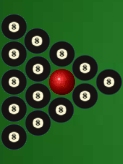Search-the-internet quiz
Viewing forum thread.
Back to Fun and Games.
Back to Forum List.
19:03 Sun 8 Nov 09 (GMT)
[Link]
Lol!
Ok, what's the website of the company whose mailing address is Lava Sports Inc., Po Box 283284, Honolulu, Hawaii, 96828?
Ok, what's the website of the company whose mailing address is Lava Sports Inc., Po Box 283284, Honolulu, Hawaii, 96828?
Deleted User
(IP Logged)
(IP Logged)
12:19 Tue 10 Nov 09 (GMT)
[Link]
There are more than ______ known cultivators of _______ resulting in a range of desired _______.
Deleted User
(IP Logged)
(IP Logged)
15:29 Tue 10 Nov 09 (GMT)
[Link]
It's because I exited the page and tried to remember what it was that was said
16:29 Tue 10 Nov 09 (GMT)
[Link]
Copy and paste!
Right, here's one for ya. Old English had strong nouns and weak nouns. Give me the only Modern English noun (or its plural) whose plural is a weak plural that survives from Old English. Now for ya!
Let me know if you need any clarification.
Right, here's one for ya. Old English had strong nouns and weak nouns. Give me the only Modern English noun (or its plural) whose plural is a weak plural that survives from Old English. Now for ya!
Let me know if you need any clarification.
Deleted User
(IP Logged)
(IP Logged)
11:20 Wed 11 Nov 09 (GMT)
[Link]
Re-read that three times!
Think I've got the general idea, I'll do some searching first then let you know if I understand.
Think I've got the general idea, I'll do some searching first then let you know if I understand.
Deleted User
(IP Logged)
(IP Logged)
05:58 Thu 12 Nov 09 (GMT)
[Link]
Yeah, I'm confused as to what I'm actually looking for.
I kind of get it, just not... enough to answer
I kind of get it, just not... enough to answer
Deleted User
(IP Logged)
(IP Logged)
06:01 Thu 12 Nov 09 (GMT)
[Link]
I'm wondering if you've kept your pattern of answers being funkypoolian names too.. hmm!
12:44 Thu 12 Nov 09 (GMT)
[Link]
Nope, I haven't!
Old English had strong nouns and weak nouns. Some (but not all) of these strong nouns were a bit irregular in the plural and involved internal vowel changes, e.g. mann "man", menn "men"; gāt "goat", gǣt "goats"; gōs "goose", gēs "geese". Compare that to some weak nouns, whose plurals were formed by adding an ending: nama "name", naman "names"; tunge "tongue", tungan "tongues".
In Modern English, the idea of strong and weak nouns has gone out the window, with almost all nouns forming their plural by adding -s or -es, when the general exception of nouns of foreign origin, such as genus/genera, bacterium/bacteria, crisis/crises, Taoiseach/Taoisigh. As can be seen in the previous paragraph's examples, however, some strong mutations in the plural have endured, such as man/men, and goose/geese; the plural of "goat", however, became "weak", and is "goats", and not something like "gate" or "geat" as its Old English counterpart would suggest. Those plurals such as "men" and "geese" are considered irregular in Modern English.
Therefore, of all the Old English nouns, there is only one which neither adds an 's' nor undergoes some vowel mutation to form its plural. Instead, it continues to form its plural almost as though it were an Old English noun. Identify it.
Edited at 18:49 Thu 12/11/09 (GMT)
Old English had strong nouns and weak nouns. Some (but not all) of these strong nouns were a bit irregular in the plural and involved internal vowel changes, e.g. mann "man", menn "men"; gāt "goat", gǣt "goats"; gōs "goose", gēs "geese". Compare that to some weak nouns, whose plurals were formed by adding an ending: nama "name", naman "names"; tunge "tongue", tungan "tongues".
In Modern English, the idea of strong and weak nouns has gone out the window, with almost all nouns forming their plural by adding -s or -es, when the general exception of nouns of foreign origin, such as genus/genera, bacterium/bacteria, crisis/crises, Taoiseach/Taoisigh. As can be seen in the previous paragraph's examples, however, some strong mutations in the plural have endured, such as man/men, and goose/geese; the plural of "goat", however, became "weak", and is "goats", and not something like "gate" or "geat" as its Old English counterpart would suggest. Those plurals such as "men" and "geese" are considered irregular in Modern English.
Therefore, of all the Old English nouns, there is only one which neither adds an 's' nor undergoes some vowel mutation to form its plural. Instead, it continues to form its plural almost as though it were an Old English noun. Identify it.
Edited at 18:49 Thu 12/11/09 (GMT)
Deleted User
(IP Logged)
(IP Logged)
18:23 Thu 12 Nov 09 (GMT)
[Link]
As much as I think I understand, I still can't find anything I can call an answer.
Deleted User
(IP Logged)
(IP Logged)
10:24 Fri 13 Nov 09 (GMT)
[Link]
Give me 'til tonight, I'll see if I can find anything
09:41 Sat 14 Nov 09 (GMT)
[Link]
The answer is.......... oxen!!! Old English oxa, plural oxan, according to http://www.etymonline.com . Rather than become oxes, the plural of ox retained its Old English weak plural form. Contrast that with something like, e.g., nama/naman (from above); the plural of name in Modern English became names, not namen.
Next question, and it is also English language-related. How many times does the word its (meaning "belonging to it") appear in the King James Version (1611) of the Bible?
Next question, and it is also English language-related. How many times does the word its (meaning "belonging to it") appear in the King James Version (1611) of the Bible?
| Unable to post | |
|---|---|
| Reason: | You must log in before you can post |
Search-the-internet quiz
Back to Top of this Page
Back to Fun and Games.
Back to Forum List.
